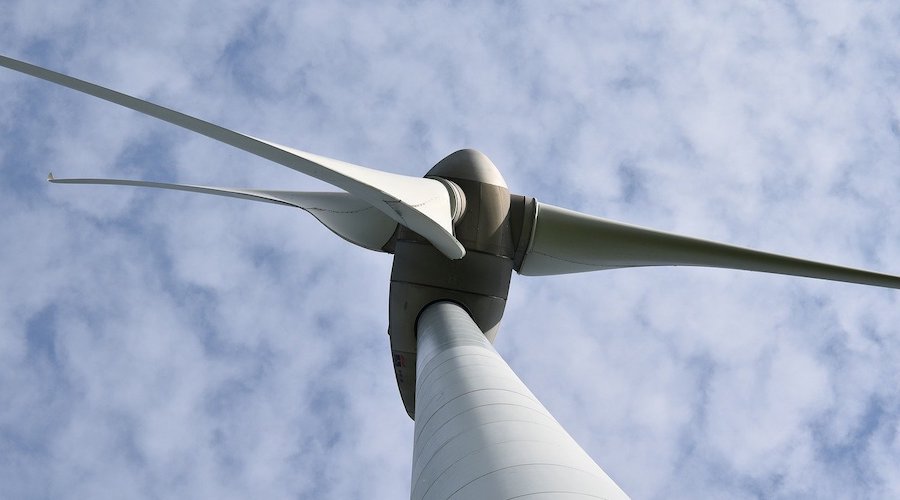Goldman analysts say markets yet to grasp full impact of Inflation Reduction Act

ESG investors are missing an array of opportunities created by President Joe Biden’s climate bill, according to analysts at Goldman Sachs Group Inc.
Almost two months after it was passed, the potential of the Inflation Reduction Act to support a number of sectors remains “underappreciated,” according to Brian Singer, an analyst at Goldman in New York. It’s a view he and his colleagues expressed shortly after the bill was enacted, and one that he still holds now.
The IRA, which became law in mid-August, offers incentives that “really have an impact on almost every — if not every — vertical that we see in the green capital expenditures mosaic of products that are going to be needed towards the path of net zero,” Singer said in an interview.
The bill’s support for key green industries such as solar, wind and electric vehicles is obvious. But the ramifications for the long chain of affiliated sectors have yet to be fully grasped by investors, the Goldman analysis shows. These include battery storage, solutions that make buildings more energy efficient, green hydrogen, as well as carbon capture and storage.
“ESG funds have historically been very overweight in solar, wind and water, and certainly as we’ve highlighted, the IRA is very supportive for solar and wind,” Singer said. “But it also provides more tailwinds for companies throughout the supply chain.”
Read More: ESG, geopolitics ranked top risks for mining companies, EY survey shows
Portfolio managers are making similar observations, as they comb the pages of the IRA to assess the investing opportunities and risks it creates. Most zero in on the vast supply-chain implications of the legislation. And alongside initiatives such as RePowerEU, which targets sustainable and affordable energy supplies for Europeans, such legislative changes represent considerable untapped investment potential, they note.
“We need more investments in the supply of critical minerals,” Tal Lomnitzer, senior investment manager on the global natural resources team at Janus Henderson Investors, said in an interview. “The more investors that are willing to make these investments and look at this space, the more capital will be made available in order to provide the metals that are going to be absolutely necessary to helping the world transition.”
Analysts are still trying to measure the significance of the IRA as it grows clear the bill will fundamentally alter the landscape for environmental, social and governance investors. UBS Group AG recently published a list of almost 60 stocks its research shows will benefit from the $390 billion spending pledge, with automakers such as Tesla Inc. and industrial giant Siemens AG among those expected to gain in value.
ESG is getting an historic boost from the Biden White House just as the Republican Party ramps up attacks on the investment form, with key GOP figures such as Florida Governor Ron DeSantis characterizing it as un-American and “woke.”
But efforts to vilify ESG appear not to have left a meaningful dent. Impact investing, which takes ESG further than just screening for risk and looks at how investments affect their environment, just hit the $1 trillion mark after 40% growth over two years, according to a study this month.
And a recent survey conducted by PwC showed that eight out of 10 US investors plan to increase their allocations to ESG products over the next two years. “The race is on to shift allocations and retrofit existing funds to keep pace with investor expectations,” the firm said.
Goldman’s asset management arm is itself stepping up exposure to the renewable energy storage sector, and recently partnered with private equity firm Cleanhill Partners to buy a majority stake in EPC Power Corp. The deal, for which no value was disclosed, gives the Wall Street firm a foothold in the growing market for US solar and energy storage value chains.
Singer and his colleagues at Goldman are advising clients to look at companies delivering potentially “transformative” technologies along the supply chain, such as renewable fuel storage and the capture and storage of carbon. These include Tesla, LG Chem, Samsung SDI, and Siemens Energy.
The climate bill “is a catalyst towards stimulating more investments across the supply chain of needed technologies to be able to move the United States and beyond, on the path towards decarbonization and net zero,” Singer said.
(By Lisa Pham)
{{ commodity.name }}
{{ post.title }}
{{ post.date }}




Comments
Leonard J Karr
The great vampire squid likes ESG investing… So it must be good for us